What is Bulimia Nervosa?
Bulimia nervosa (which is often called bulimia) is an eating disorder involving an obsessive desire to lose weight, that drives people to bouts of extreme overeating followed self-induced purging. This can occur through forced vomiting, or by taking laxatives or diuretics. Purge behaviors can also include other strict methods to maintain weight such as fasting, excessive exercise, or extreme dieting.
People suffering with bulimia often have an unrealistic body image. They are obsessed with their weight, are intensely self-critical, and often judge themselves harshly for what they perceive to be serious flaws.
Because bulimia is related to self-image and not just about food, it can be challenging to overcome, but effective treatment can help people feel better about themselves, adopt healthier eating patterns, and even reverse serious health complications.
Signs and Symptoms of Bulimia Nervosa
The most common symptoms of bulimia include:
- Long-term fear of gaining weight
- Comments about being fat
- Preoccupation with weight and body
- A strongly negative self-image
- Binge eating
- Forceful vomiting
- Overuse of laxatives or diuretics
- Use of supplements or herbs for weight loss
- Excessive exercise
- Stained teeth (from stomach acid)
- Calluses on the back of the hands
- Going to the bathroom immediately after meals
- Not eating in front of others
- Withdrawal from normal social activities
What Causes Bulimia Nervosa?
Bulimia has no known cause. However, there are a couple of factors that can influence its development.
People with mental health conditions or a distorted view of reality are at higher risk. The same is true for people with a strong need to meet social expectations and norms. Those who are highly influenced by the media may be at risk as well. Other factors include:
- Anger issues
- Depression
- Perfectionism
- Impulsiveness
- Past traumatic event
Some research suggests that bulimia is hereditary, or could be caused by a serotonin deficiency in the brain.
How is Bulimia Nervosa Treated?
Treatment focuses not just on food and nutrition education but also mental health treatment. It requires development of a healthy view of the self and a healthy relationship with food.
Medication Treatment Options
Antidepressants such as Celexa, Lexapro, Prozac, Zoloft and others — which are all selective serotonin reuptake inhibitors (SSRIs) —may help reduce the symptoms of bulimia when taken along with psychotherapy.
Traditional Therapy Options
Discussing bulimia and related issues with a mental health professional during psychotherapy (also known as talk therapy or psychological counseling) can help improve symptoms of bulimia. A few kinds of therapy that have been shown to be effective include:
- Cognitive behavioral therapy which can help you identify unhealthy, negative beliefs and behaviors, and replace them with healthy, positive ones.
- Family-based treatment to help parents intervene with a teenager’s unhealthy eating behaviors and regain control over their eating habits.
- Interpersonal psychotherapy which can help improve relationships, interpersonal communications, and problem-solving skills.
Support From a Dietitian
People with bulimia nervosa are usually locked into a binge, purge, and restrict cycle of eating, and have usually lost touch with their true hunger and fullness cues. A dietitian can help them to learn healthy eating habits, make nutritious meal plans, and develop a sensible weight loss program.
Hospitalization in Severe Cases
Treatment for complications may include hospitalization for severe cases of bulimia. Successful treatment usually involves an antidepressant, psychotherapy, and a collaborative approach between your doctor, mental healthcare provider, and family and friends.
Some eating disorder treatment facilities offer live-in or day treatment programs. Patients participating in live-in programs at treatment facilities receive around-the-clock support and care. Patients take classes, attend therapy, and eat nutritious meals. They may also practice mindfulness through things like gentle yoga to increase body awareness.
Bulimia Nervosa FAQ
Yes. Research has shown that about one-third of those with anorexia cross over to bulimia and 14 percent of those with bulimia cross over to anorexia. One Behavioral Health tends to lead to another in this eating disorder cycle.
If you have a compulsion to eat large amounts of food you should see a doctor, because this may be an indicator of bigger issues. A mental health professional can help to resolve your eating habit patterns and the underlying emotional issues that are causing them.
It’s not always easy to discuss eating concerns with someone you are close to, however, friends and family are often the key to getting someone with eating or body image issues to seek help. Encourage them to research their options, let them know that they are not alone, and reassure them that you will support them in their desire to get better.
